Martin Marietta Invests in Aerotropolis Asphalt Plant
BY AsphaltPro Staff
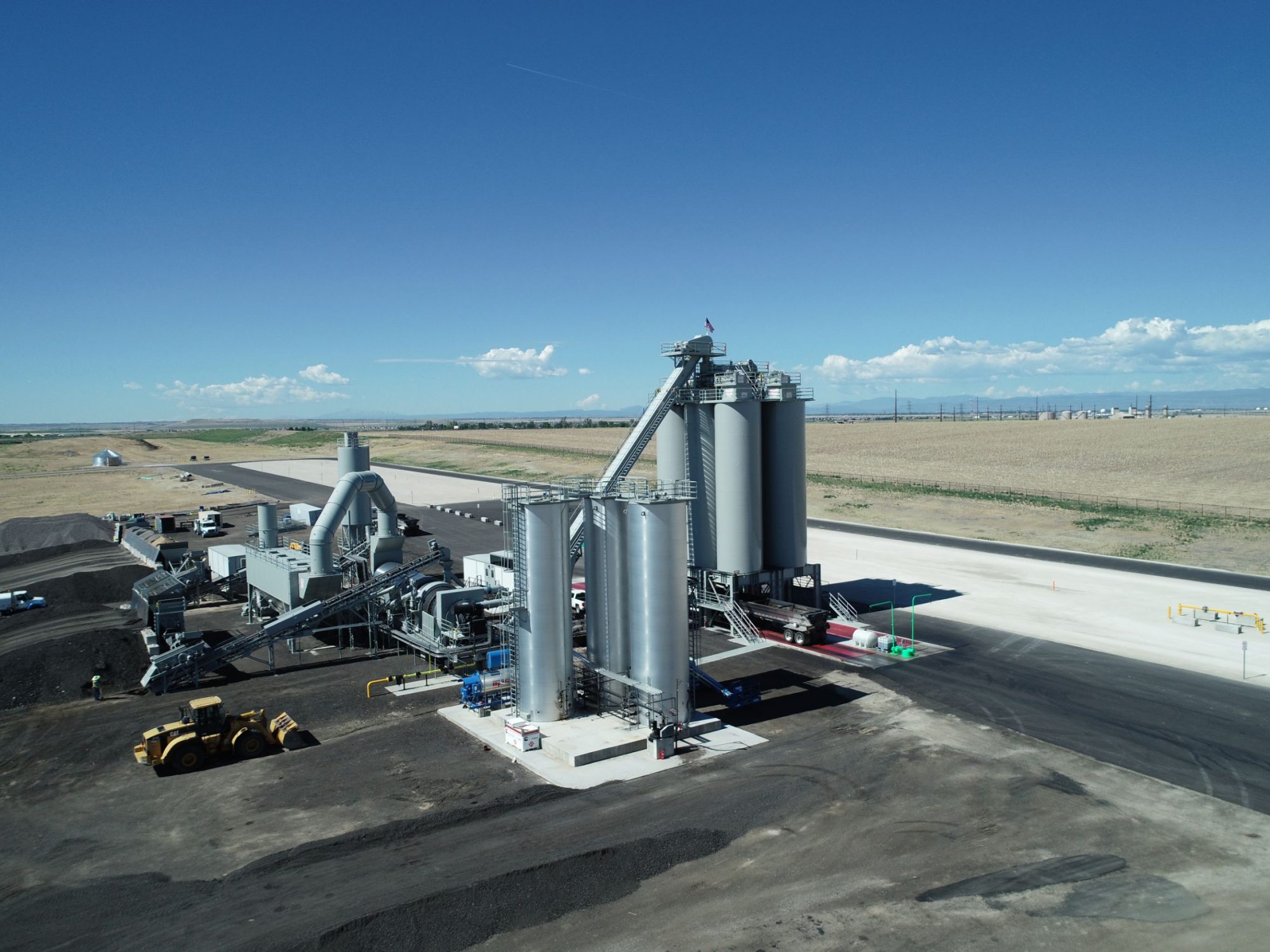
Located 25 miles from downtown, Denver International Airport (DIA) has long been subject to complaints that it’s too far from the city. A quarter of a century after its construction, it seems the city is coming to the airport.
In 2016, the Federal Highway Administration (FHA) funded the Colorado Aerotropolis Visioning Study to identify infrastructure needed to support economic development around DIA. According to the Colorado Department of Transportation (CDOT), which administered the study, an aerotropolis is “an urban plan in which the layout, infrastructure, and economy are centered on and around an airport.”
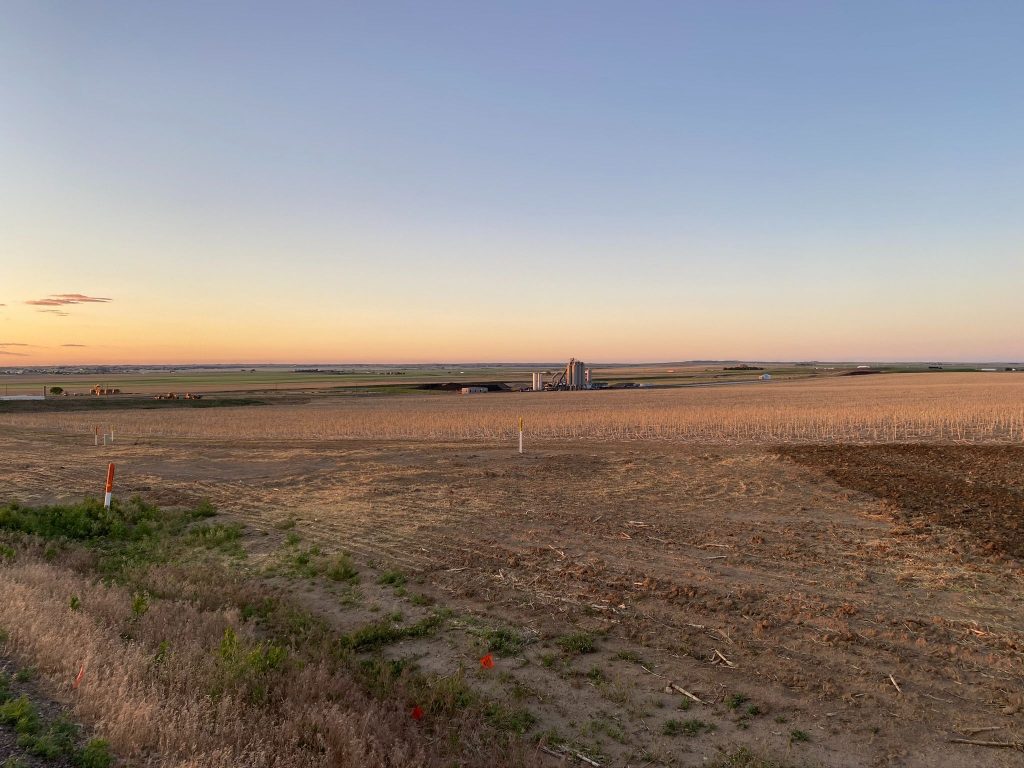
Although the plant is surrounded by fields for now, it’s only a matter of time before new home construction in the adjacent Aurora Highlands reaches the edge of the plant.
The plan is to populate the 21,000 mostly vacant acres of Aerotropolis’ land with 10 million square feet of retail space, 30 million square feet of office space, and 40 million square feet of industrial and commercial space, as well as numerous residential developments, according to the Denver Post. A recent Metrostudy housing market analysis estimates that nearly 30 percent of the 220,000 available lots left to build on around Denver are located in the E-470/I-70/DIA corridor, adding an average of 544 new homes to the area each year.
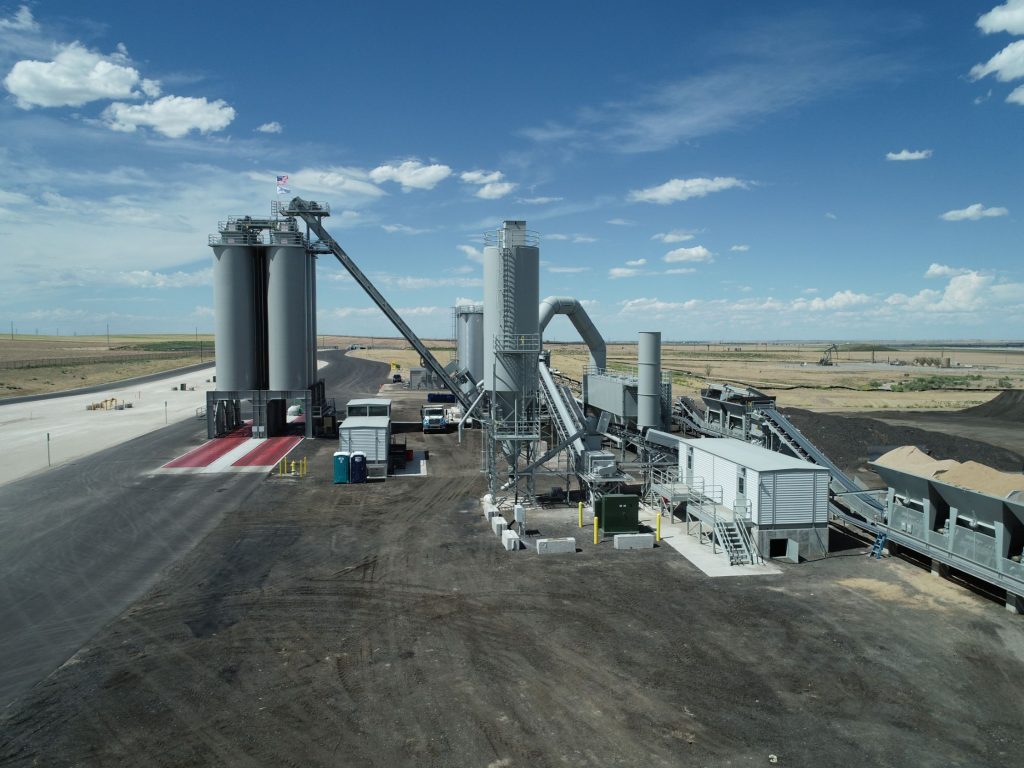
Aerotropolis will also be home to at least one asphalt plant. Martin Marietta, headquartered in Raleigh, North Carolina, opened its third asphalt plant in the Denver Metro Area 8.6 miles from DIA and right in the midst of Aerotropolis itself.
Martin Marietta Coordinates for Success on College Avenue Project in Fort Collins
“We’ve been running our other two plants in the Denver metro area at maximum capacity for five or six years,” said Martin Marietta General Manager Trevor Norton. “We’d been wanting to add another plant for a while now.” One of the existing plants was producing around one million tons of asphalt per year, and the other, nearly 700,000. “And we still had days where we needed more,” added Area Production Manager Pat Hartshorn.
The company purchased the property for their third plant in February 2018. The 500 tph Gencor plant is capable of producing up to 800,000 tons per year, in addition to better-serving jobs east of Denver.
The company’s other plants in the Denver metro area include one on the west side of the city along I-70 and one plant right off I-25 and Highway 76 that covers central Denver. Putting their third plant east of the city was a natural progression, Norton said.
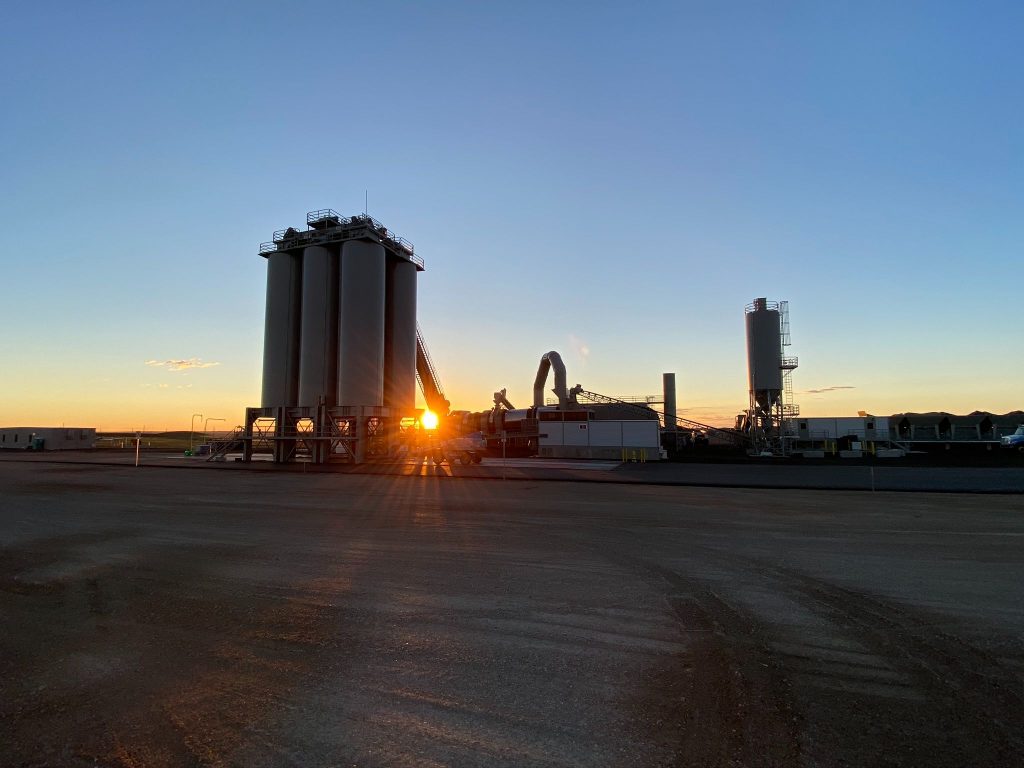
The new plant aims to reduce the burden on Martin Marietta’s existing asphalt plants in the Denver area, both of which have been operating at maximum capacity for years.
Martin Marietta’s asphalt plant in central Denver is also from Gencor, and its plant on the west side is the largest Astec Double Barrel plant in the world, Hartshorn said.
“That area is rapidly changing,” he added. “Subdivisions are going in, a commercial district is going in, there are warehouses being designed for mass transfer operations through the airport, distribution centers, and a new Gaylord convention center.”
Because capacity was the catalyst for the new plant, Martin Marietta also chose to invest in six 300-ton silos for improved product flexibility.
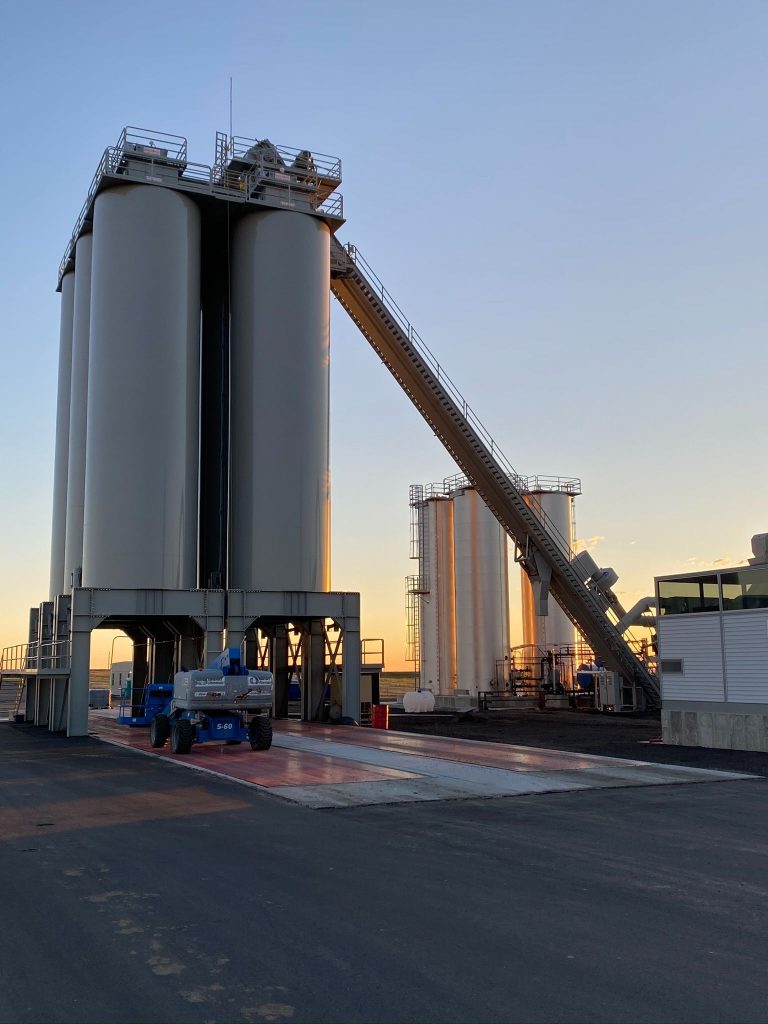
Because capacity was the catalyst for the new plant, Martin Marietta also chose to invest in six 300-ton silos for improved product flexibility.
“Flexibility is a requirement in this business today,” Hartshorn said. “The asphalt industry used to be one, maybe two mixes per day. Now, things are more complex, and there are plenty of days when we need to produce six different mixes on a daily basis.”
To supply increased demand for stone mastic asphalt (SMA) mixes, Martin Marietta plans to equip the plant with a Gencor mineral filler silo over the 2020/2021 winter and an additional Gencor AC tank for added flexibility.
Because Martin Marietta performs a lot of cold-weather paving–more than 300,000 tons in some years–it was also important that the use of additives at the plant was easy and effective. To accomplish this goal, the plant will be equipped with an additive injection system in the future.
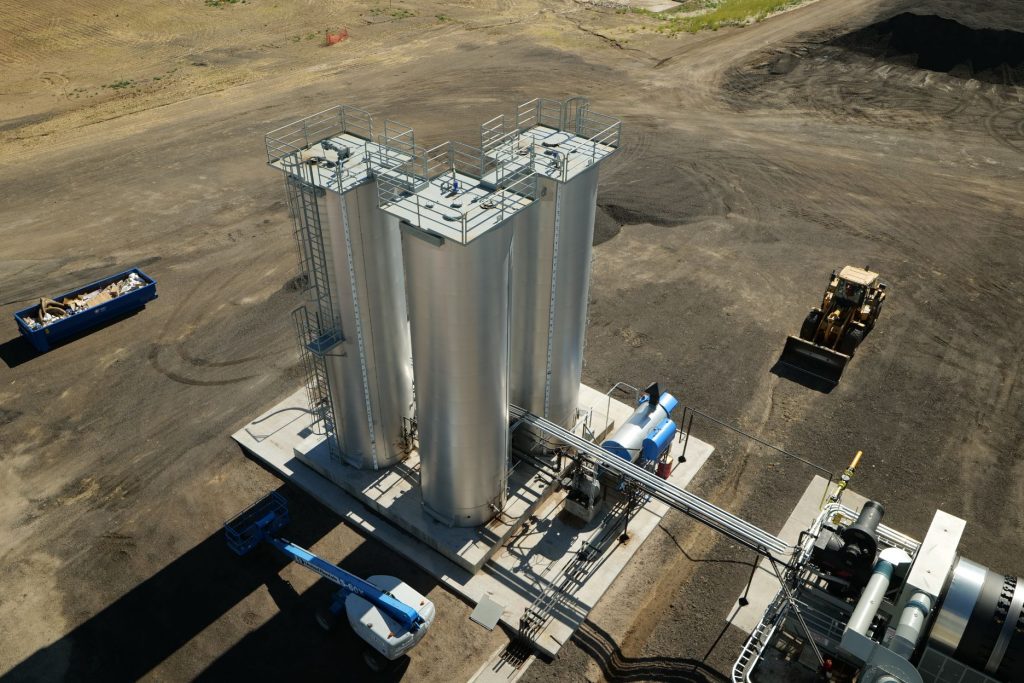
In the winter of 2020/2021, Martin Marietta added another AC tank for additional flexibility.
The plant also has its own lab prepared for just about any testing CDOT requires.
The biggest challenge to the plant build was turning a grass pasture into industrial land for an asphalt plant. They had to bring in all utilities. “Our gas and electric providers had to run several miles of pipe,” Norton said. However, they knew this part of the project wouldn’t be ready in time for the new plant’s first few months of operation, so they developed a plan to run the plant on compressed natural gas (CNG) from Certarus until the gas pipeline was operational. In the end, the plant ran on CNG for 1.5 months.
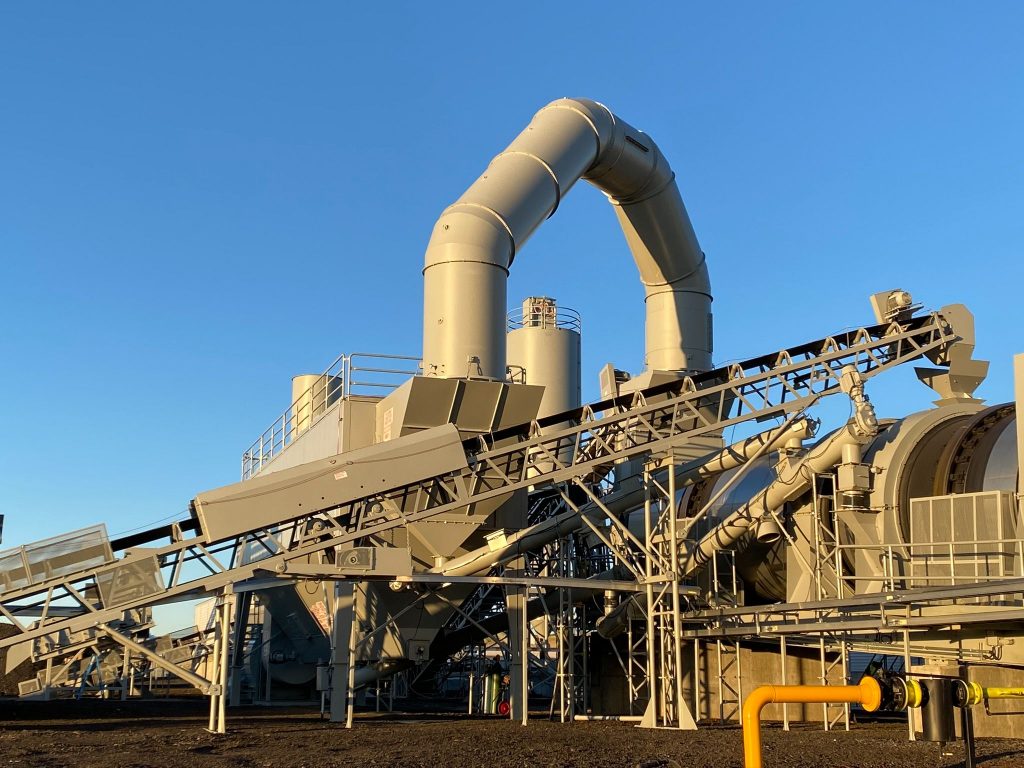
Martin Marietta plans to build a rail facility so they can ship aggregate into Denver.
Even now that they have the pipeline hooked up, Hartshorn said it’s nice to have the plant set up for CNG in case of emergencies like a burst pipe. “We can be running again on CNG within 24 hours,” he said. “It’s more expensive, but it’s nice to have that flexibility if we ever needed it.”
There was also the planning and permitting process that took much longer than anticipated. “Those were the two bottlenecks: utilities and plant permitting,” Hartshorn said. “Getting the plant from Gencor was easy compared to those.”
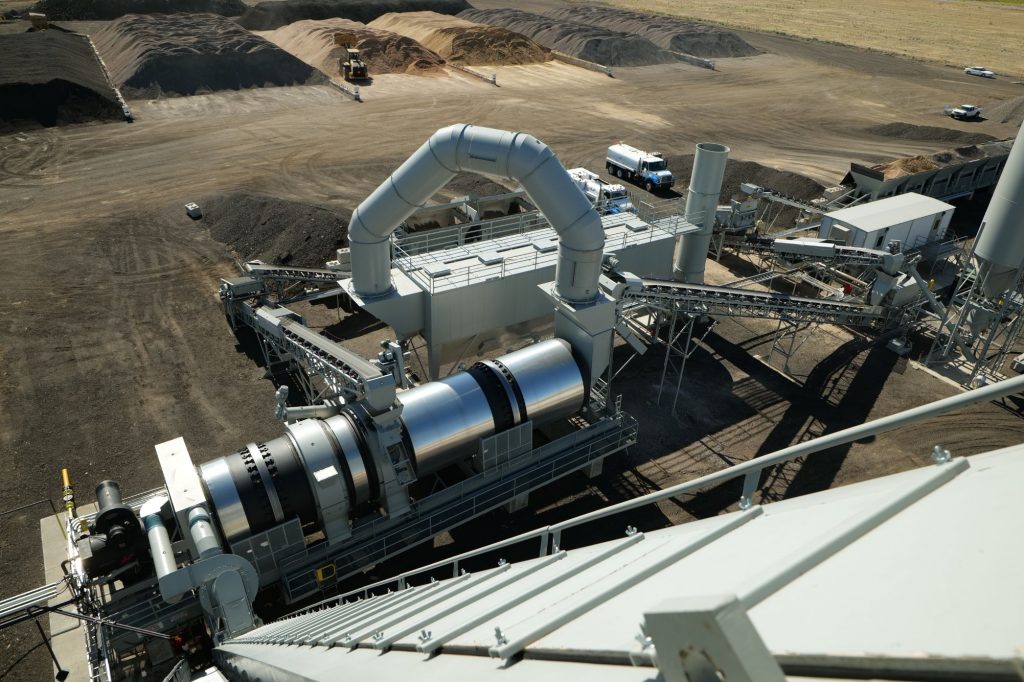
The plant’s first day of operation was June 5, 2020. “The plant has already produced 280,000 tons,” Norton said.
“Another roadblock was when the local fire department said we had to have fire systems out there before we could operate,” Hartshorn said. Since it will be three years before the plant has running water, the company had to place a 50,000-gallon water tank and pumps out at the new plant. “It’s like we have our own little fire department out there.”
The plant operator at the new plant, Bernardo Estrada, had worked as a systems operator at Martin Marietta’s plant west of Denver for four years and worked on one of the company’s paving crews for four years prior to that. “He was the perfect candidate to go run the new plant,” Norton said. Bill Oetken, one of Martin Marietta’s construction managers, was also integral to the new plant. He and his team oversaw the site development work and utility installations.
Martin Marietta also made sure to design the plant with its neighbors in mind. Aurora Highlands, a large residential development, is located across the street from the plant. Although there are no homes there now, it’s only a matter of time. “It’s growing in our direction as it’s developed,” Norton said.
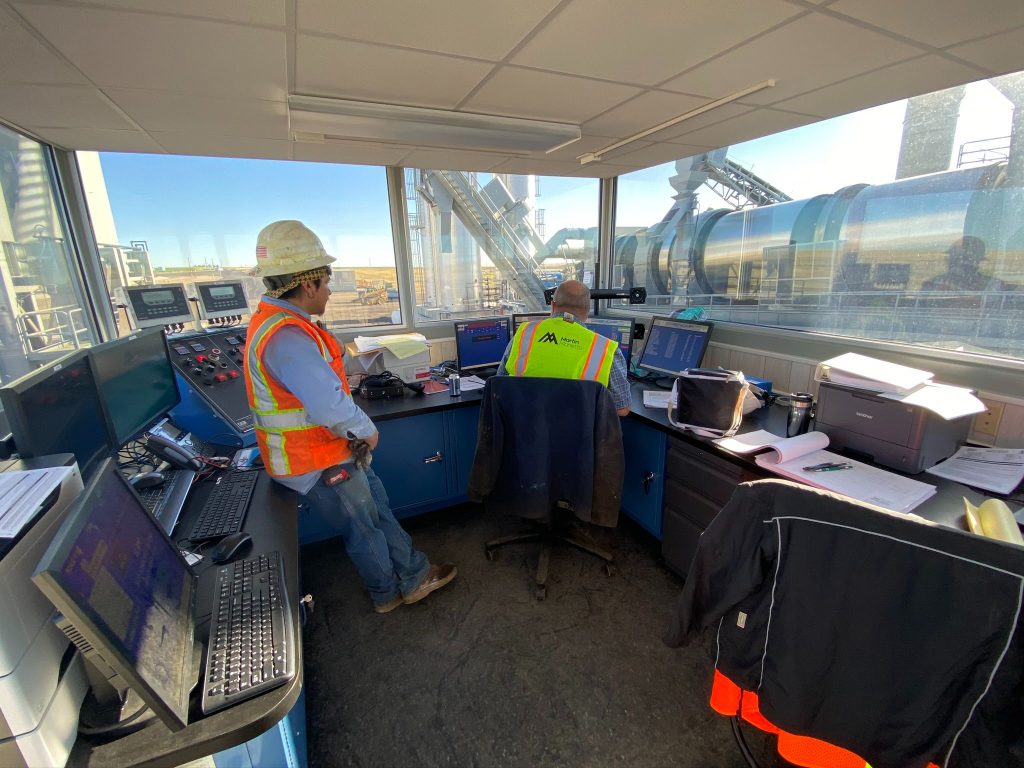
“It’s the quietest plant I’ve ever been around,” Hartshorn said, using variable frequency drives on its fan motors as well as drum insulation and air system silencers. “It’s hard to tell the plant is running unless you’re right there at it.”
Although they don’t have to worry so much about their other neighbors–a solar panel field is in the works next door–it’s also a matter of environmental stewardship.
The plant’s first day of operation was June 5, 2020. Immediately out of the gate, the plant was doing exactly what it was supposed to do: serving a key infrastructure project supporting the growth of east Denver and taking on some of the burden from Martin Marietta’s other Denver plants.
“An immediate relief was felt at the other two plants and in the field, reduced truck lines resulted in an increase in productivity at the paver,” Norton said. “In early November we were able to place 9900 tons in a single day, which previously wouldn’t have been a possibility with only two plants on a short November day.”
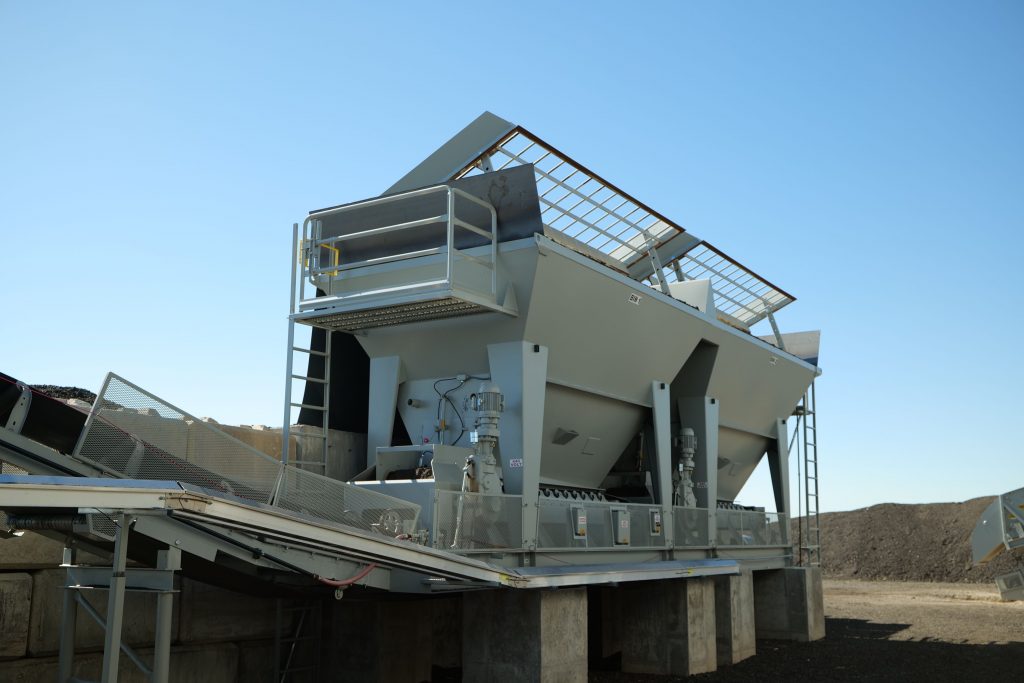
Although Martin Marietta had already completed a significant amount of paving on a nearby project on E-470, they still had about 70,000 tons to go. Having the plant located just 5 miles from the project had a major impact and enabled the company’s crews to pave up to 7,200 tons in a single weekend.
They also used the plant on a large project for Adams County, even further east of Denver than the plant, as well as a J.A. Green Development project as part of the Aerotropolis growth, and a bit of work within the Aurora Highlands residential development.
“The plant has already produced 280,000 tons,” Norton said.
In May of 2019, the Aerotropolis Regional Transportation Authority issued bonds toward what will amount to $200 million in transportation improvements over the next decade or so.
On average, about two-thirds of the tonnage produced at Martin Marietta’s plants is used on the company’s own paving projects. However, about 90 percent of the tons produced at its new plant were used internally.
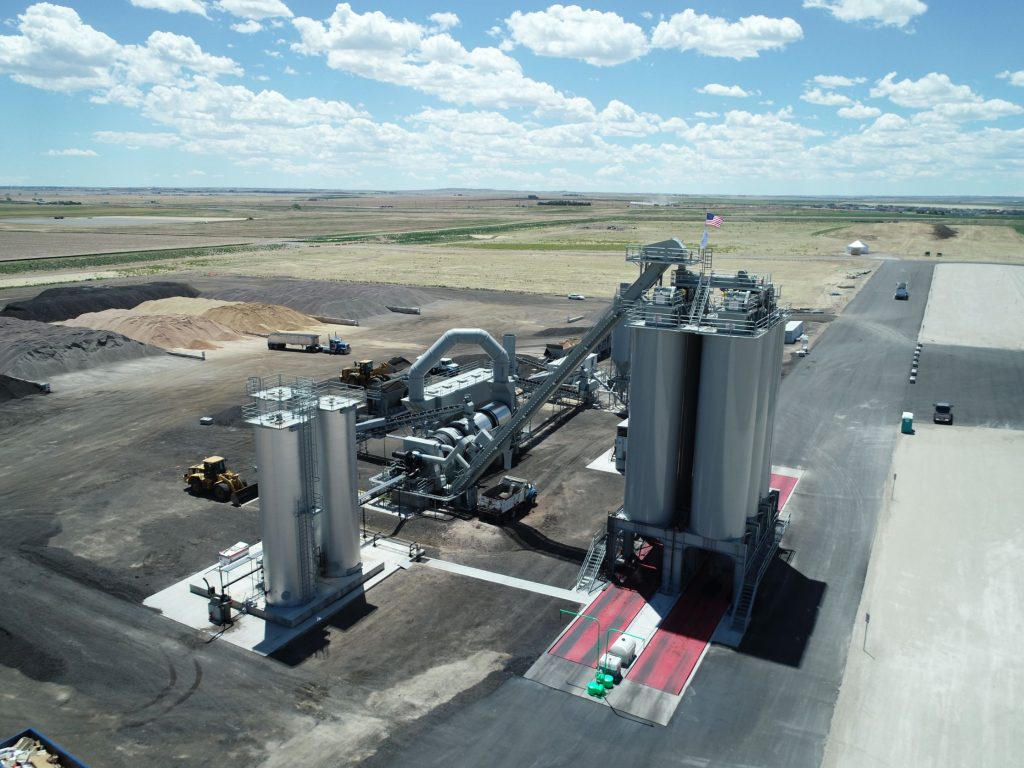
Despite the uncertainty in the world right now, Norton isn’t worried about the new plant. “With all the growth out there, it might even become our second-biggest producing plant in Denver metro pretty easily.”
In addition to the asphalt plant, the company plans to build a concrete production facility and a rail facility where Martin Marietta will be able to ship aggregate into Denver. They plan to build a spur onto an existing rail line adjacent to the south side of the plant in the next few years.
“We have quarries in Wyoming, in Colorado Springs,” Norton said. “The rail facility gives us more flexibility to transport aggregate up and down the front range.”
